Carlos Monteiro, who invented the term 'ultra-processed food' was at a conference this week showing people what it is all about.
Notice that one defining characteristic is the pursuit of profit. Companies who make ultra-processed food want to maximise their profits, whereas other food companies feed us out of the goodness of their hearts. Adam Smith famously praised the benevolence of the butcher, the brewer and the baker!
Monteiro first explains what ultra-processed food is for people with a reading age of 5.
In conclusion, if the food industry processes it, it’s ultra-processed (deadly) but if you or a chef process it, it is good wholesome fare (purity). Notice again that maximising profits is mentioned as a defining characteristic, something that is of no concern to companies like Danone.
As the next slide shows, people are not cooking at home as much as they used to do.
Some of the vertical axes below should really start at zero. Nevertheless, we can see that ultra-processed food tends - on average - to have more fat and sugar and less fibre, protein and potassium.
This supports the standard advice to eat less fat and sugar and eat more fibre and protein. We don’t need to go war on sliced bread and vegan meat substitutes to make this point.
But then we get the famous Kevin Hall study (previously discussed here).
Note that this study appears to make the previous slide redundant since the ultra-processed meals in the experiment had roughly the same amount of sugar, fibre, fat, etc. as the minimally processed meals.
What’s going on? I have previously suggested that the ultra-processed food is tastier and therefore people eat more of it. Kevin Hall isn’t so sure. He says that both sets of meals were rated as equally tasty (which, as Stuart Ritchie points out, seems to undermine the claim that ultra-processed foods are ‘hyper-palatable’).
So what does the inventor of the phrase think is happening?
As you can see from this slide, he hasn’t got a clue. He has a load of unevidenced half-theories.
But that’s no reason not to get medieval on ultra-processed food’s ass.
It feels like every branch academia has been lobomotised, doesn’t it?





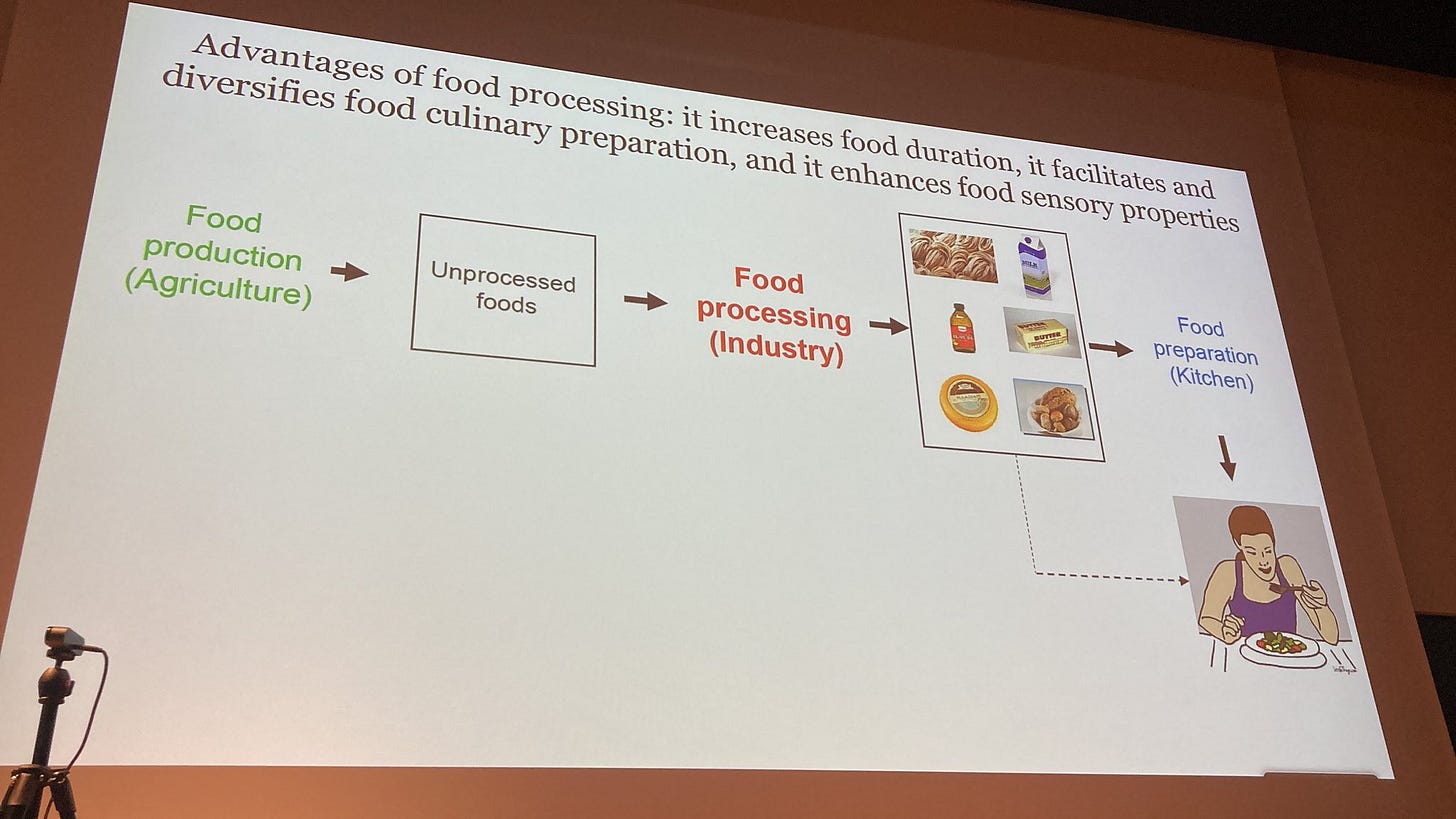
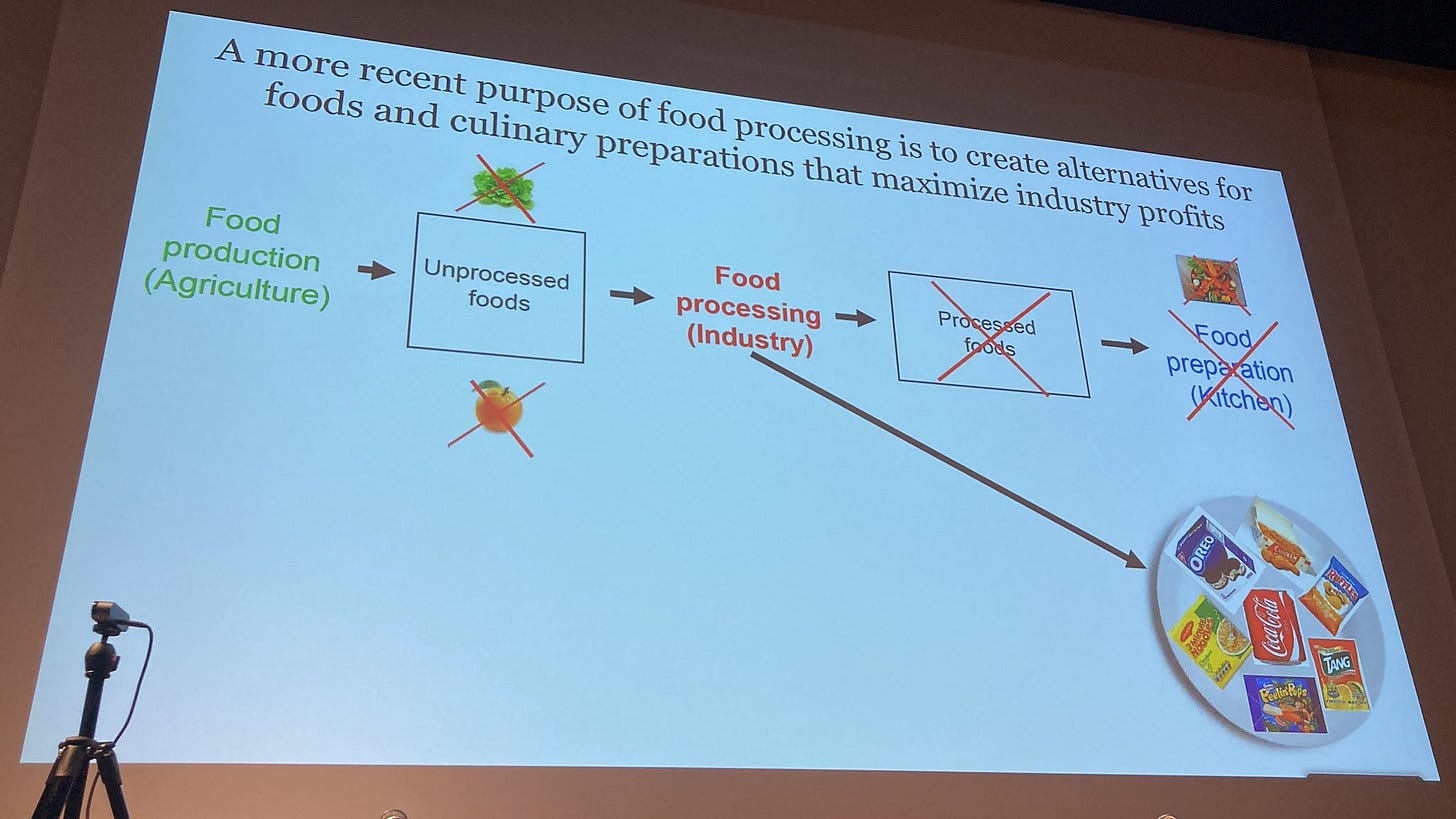
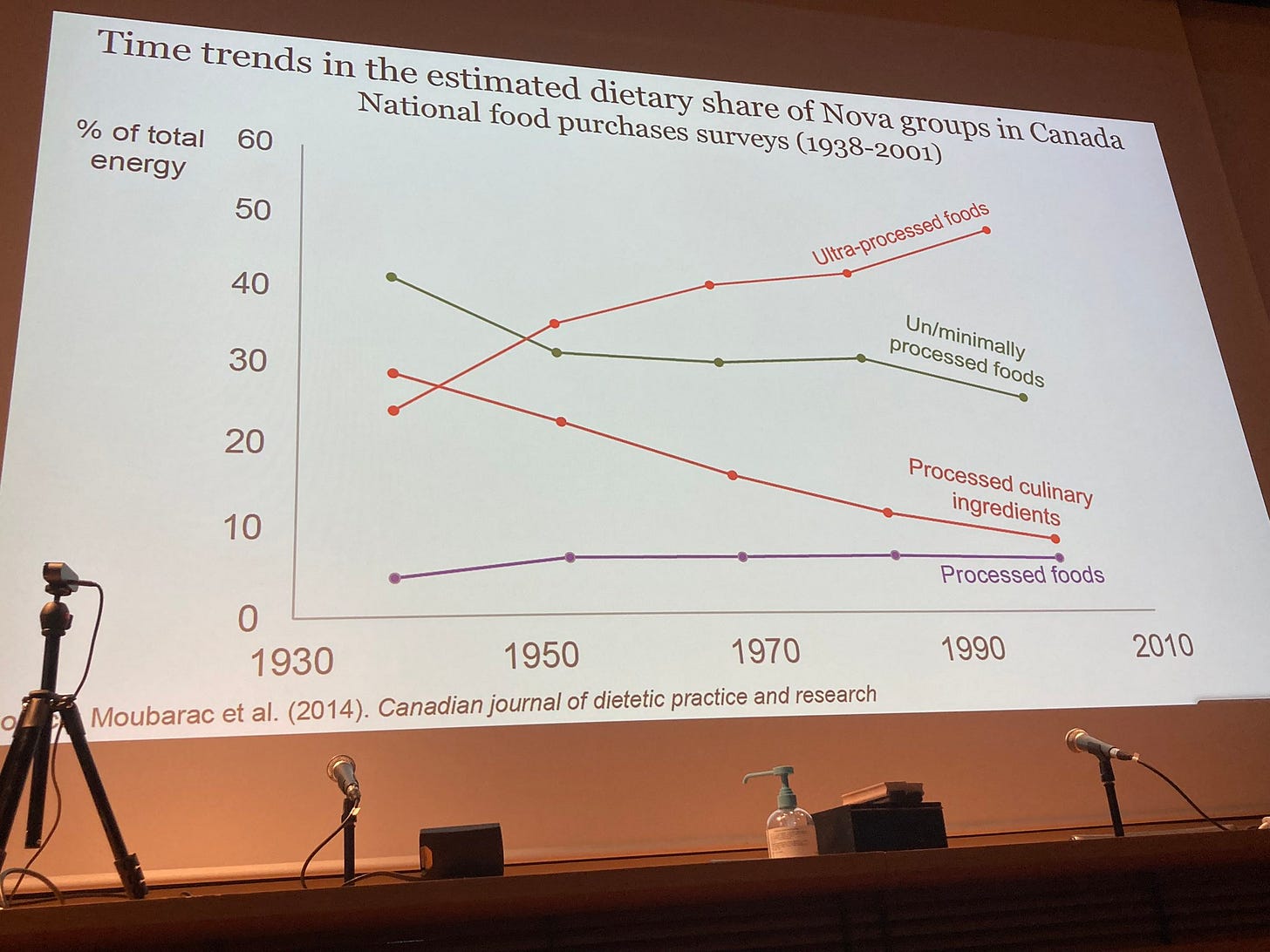
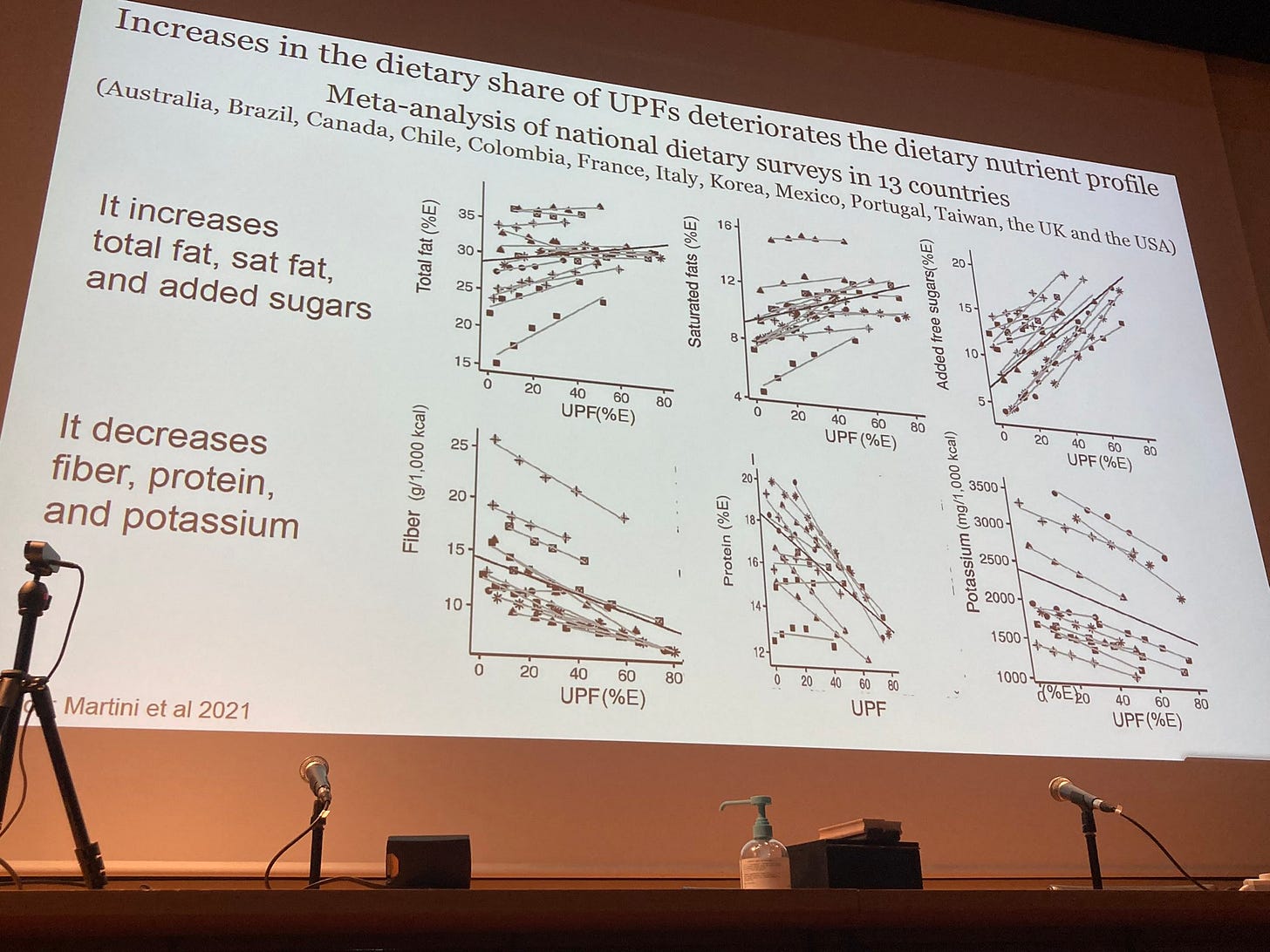
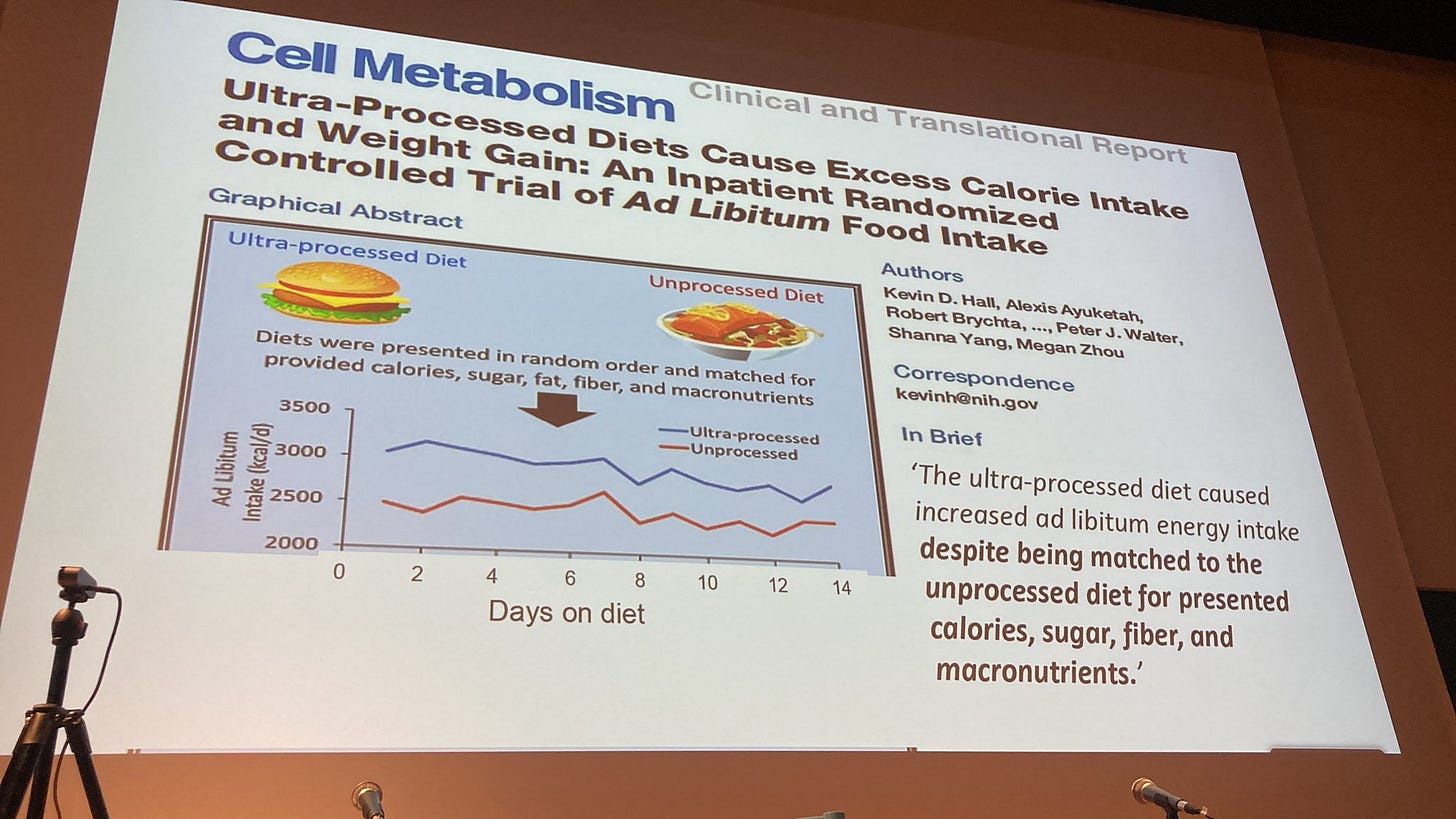
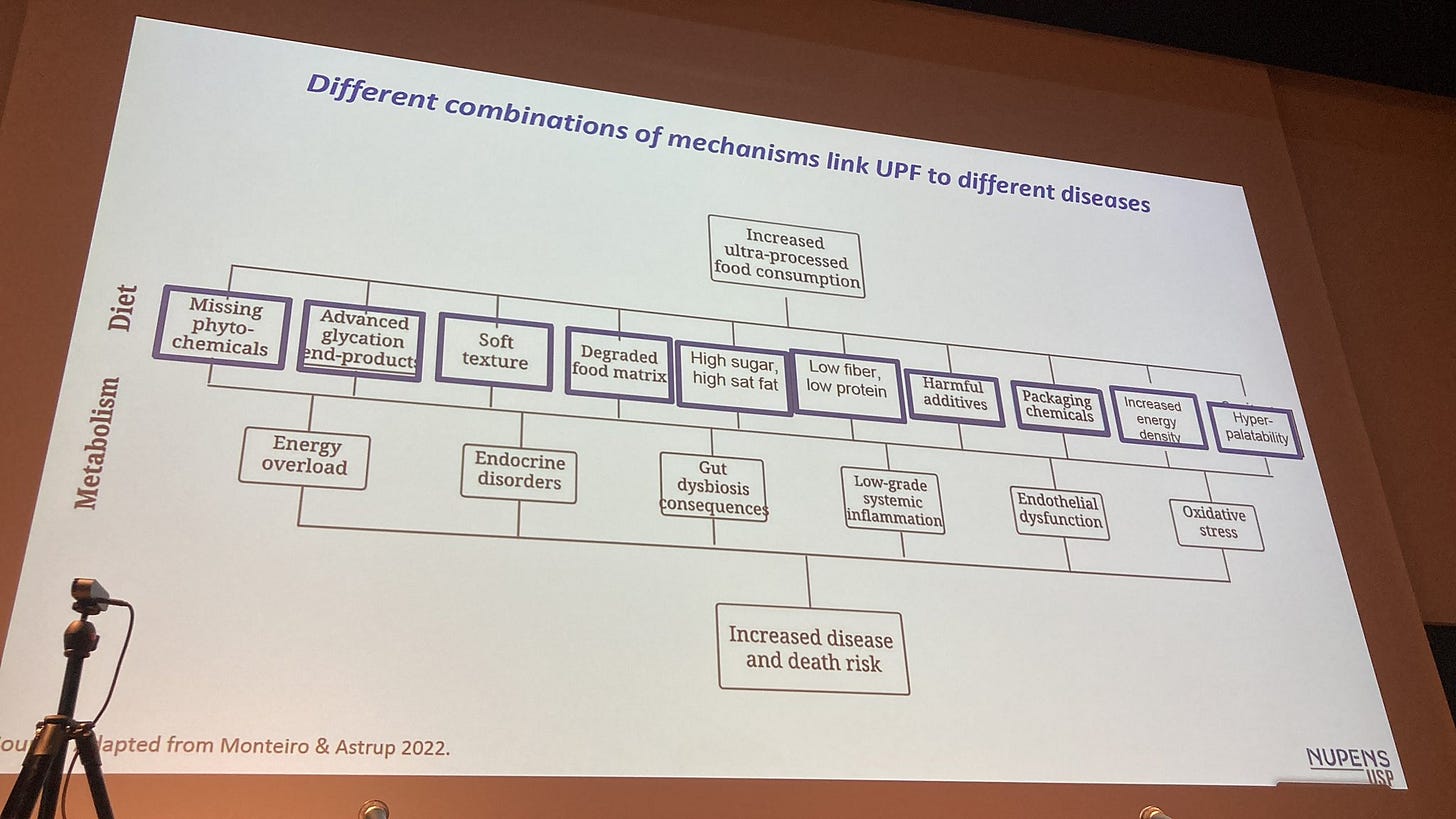
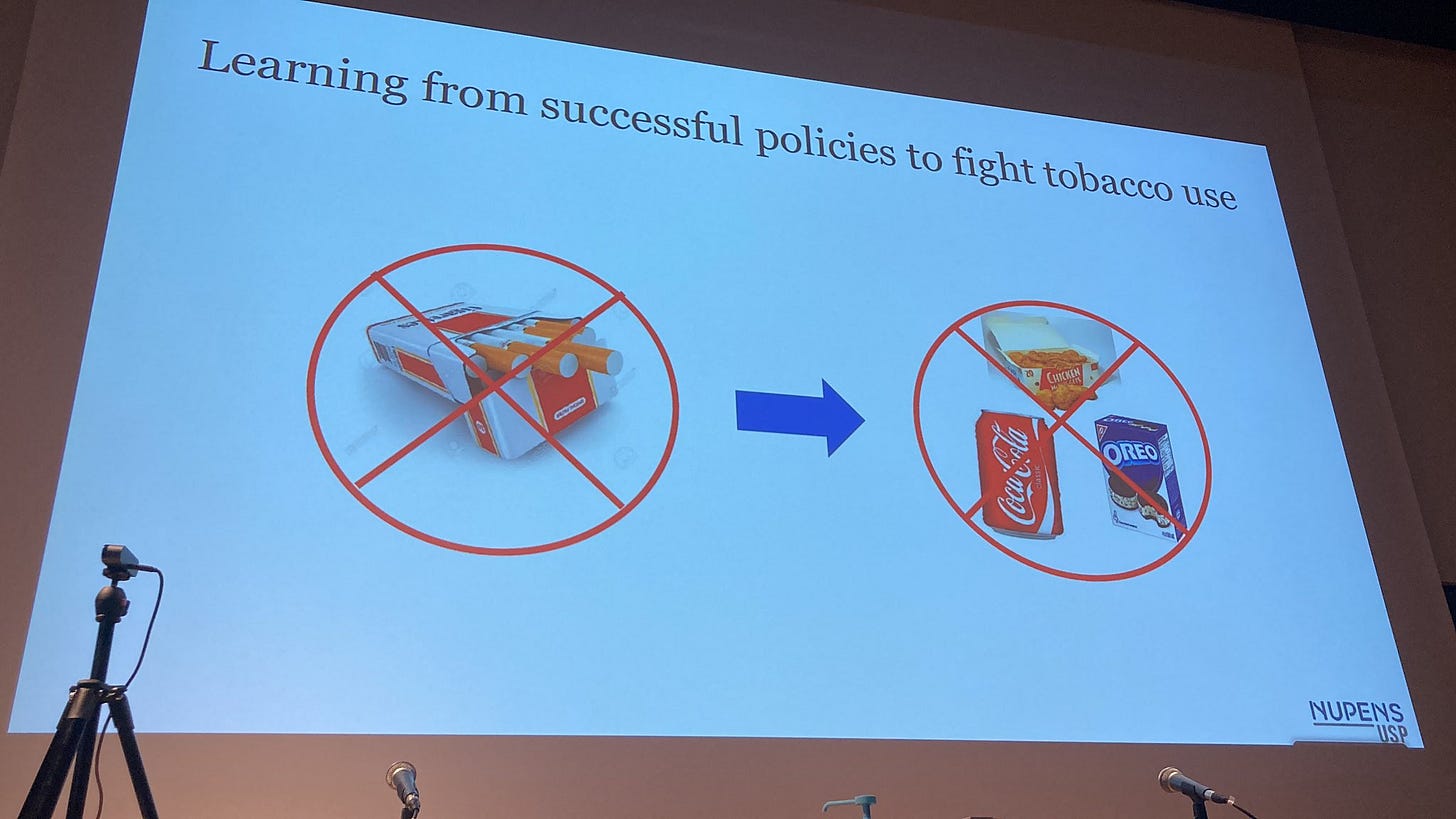
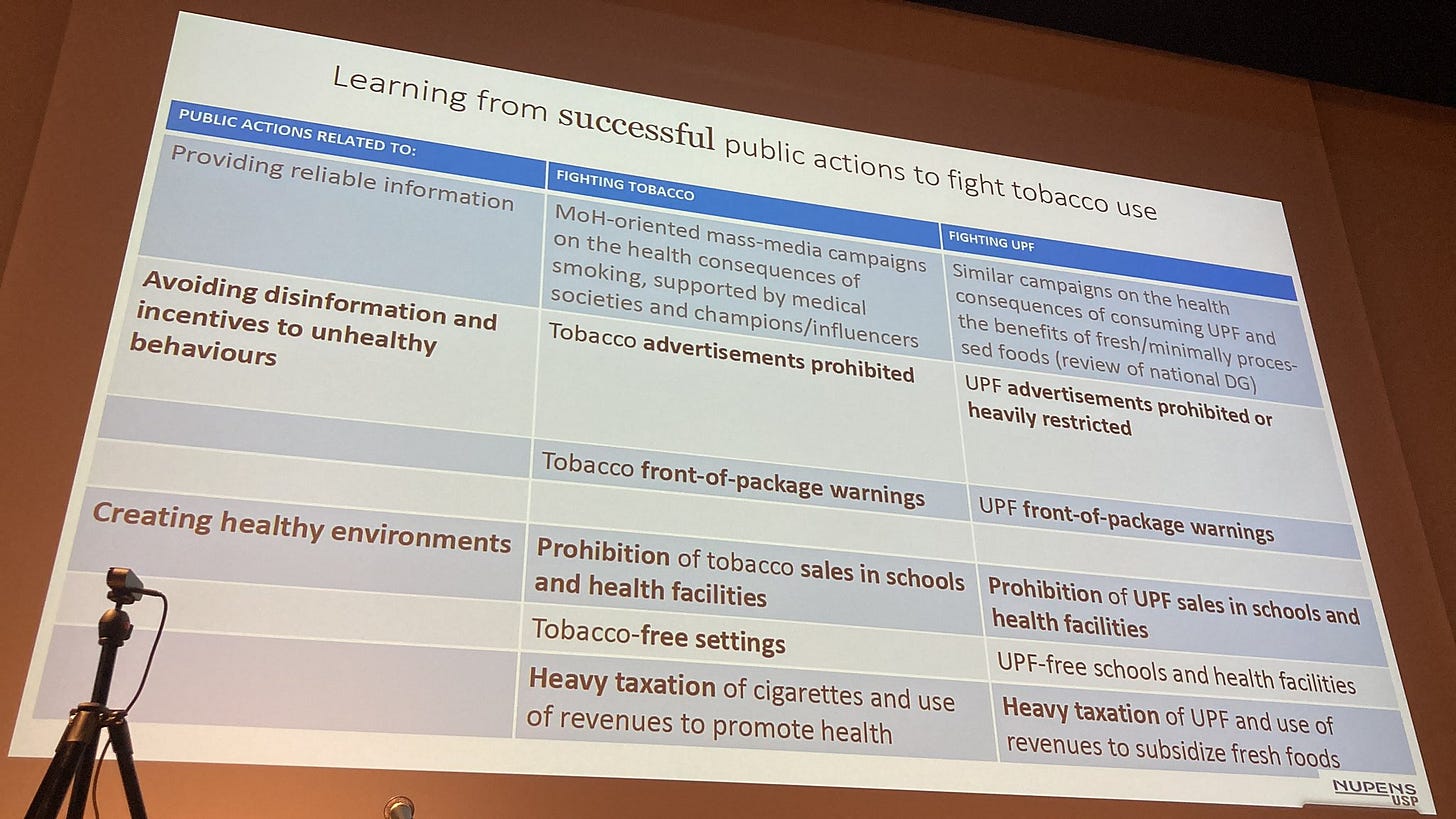
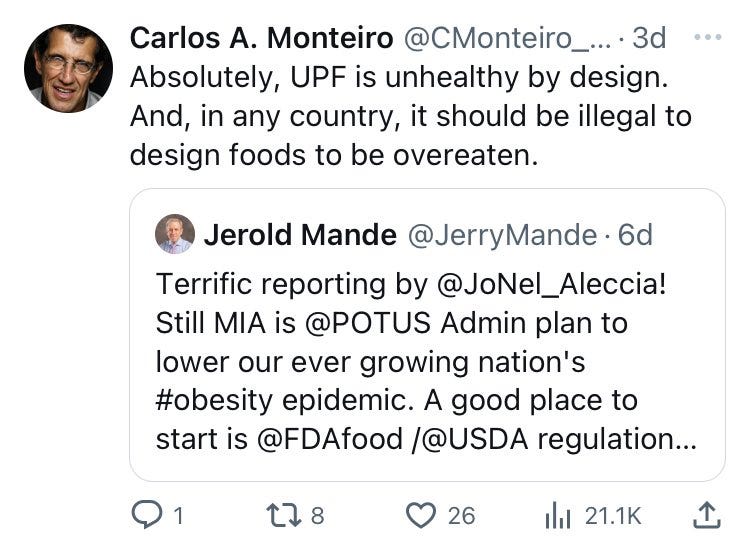
How much of opposition to UPFs is just snobbery? If you go to a restaurant and order, idk, lobster thermidor or something, there's still a lot of fat and salt in that. Fat and salt make things taste good! But it avoids the ire of the UPF bashers, because it was cooked by an underpaid professional for the benefit of (most likely) an overpaid one. That's the only difference between "ultra-processed" and haute cuisine.
The whole purpose of the ultra-processed food scam is to hide the role of soft drinks, one of the main drivers of the obesity epidemic.